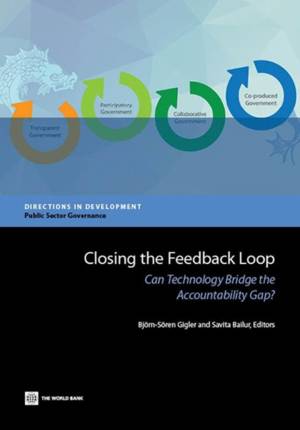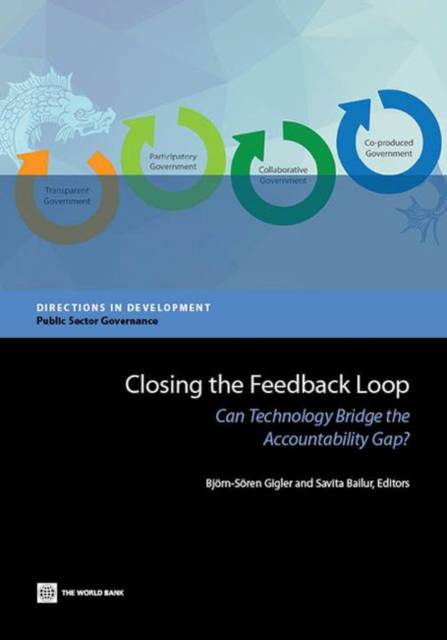
Bedankt voor het vertrouwen het afgelopen jaar! Om jou te bedanken bieden we GRATIS verzending (in België) aan op alles gedurende de hele maand januari.
- Afhalen na 1 uur in een winkel met voorraad
- Gratis thuislevering in België vanaf € 30
- Ruim aanbod met 7 miljoen producten
Bedankt voor het vertrouwen het afgelopen jaar! Om jou te bedanken bieden we GRATIS verzending (in België) aan op alles gedurende de hele maand januari.
- Afhalen na 1 uur in een winkel met voorraad
- Gratis thuislevering in België vanaf € 30
- Ruim aanbod met 7 miljoen producten
Zoeken
€ 41,45
+ 82 punten
Omschrijving
This book is a collection of articles, written by both academics and practitioners as an evidence base for citizen engagement through information and communication technologies (ICTs). In it, the authors ask: how do ICTs empower through participation, transparency and accountability? Specifically, the authors examine two principal questions: Are technologies an accelerator to closing the 'accountability gap' -- the space between the supply (governments, service providers) and demand (citizens, communities, civil society organizations or CSOs) that requires bridging for open and collaborative governance? And under what conditions does this occur? The introductory chapters lay the theoretical groundwork for understanding the potential of technologies to achieving intended goals. Chapter 1 takes us through the theoretical linkages between empowerment, participation, transparency and accountability. In Chapter 2, the authors devise an informational capability framework, relating human abilities and well-being to the use of ICTs. The chapters to follow highlight practical examples that operationalize ICT-led initiatives. Chapter 3 reviews a sample of projects targeting the goals of transparency and accountability in governance to make preliminary conclusions around what evidence exists to date, and where to go from here. In chapter 4, the author reviews the process of interactive community mapping (ICM) with examples that support general local development and others that mitigate natural disasters. Chapter 5 examines crowdsourcing in fragile states to track aid flows, report on incitement or organize grassroots movements. In chapter 6, the author reviews Check My School (CMS), a community monitoring project in the Philippines designed to track the provision of services in public schools. Chapter 7 introduces four key ICT-led, citizen-governance initiatives in primary health care in Karnataka, India. Chapter 8 analyzes the World Bank Institute's use of ICTs in expanding citizen project input to understand the extent to which technologies can either engender a new 'feedback loop' or ameliorate a 'broken loop'. The authors' analysis of the evidence signals ICTs as an accelerator to closing the 'accountability gap'. In Chapter 9, the authors conclude with the Loch Ness model to illustrate how technologies contribute to shrinking the gap, why the gap remains open in many cases, and what can be done to help close it. This collection is a critical addition to existing literature on ICTs and citizen engagement for two main reasons: first, it is expansive, covering initiatives that leverage a wide range of technology tools, from mobile phone reporting to crowdsourcing to interactive mapping; second, it is the first of its kind to offer concrete recommendations on how to close feedback loops.
Specificaties
Betrokkenen
- Auteur(s):
- Uitgeverij:
Inhoud
- Aantal bladzijden:
- 328
- Taal:
- Engels
- Reeks:
Eigenschappen
- Productcode (EAN):
- 9781464801914
- Verschijningsdatum:
- 22/05/2014
- Uitvoering:
- Paperback
- Formaat:
- Trade paperback (VS)
- Afmetingen:
- 178 mm x 254 mm
- Gewicht:
- 571 g

Alleen bij Standaard Boekhandel
+ 82 punten op je klantenkaart van Standaard Boekhandel
Beoordelingen
We publiceren alleen reviews die voldoen aan de voorwaarden voor reviews. Bekijk onze voorwaarden voor reviews.









